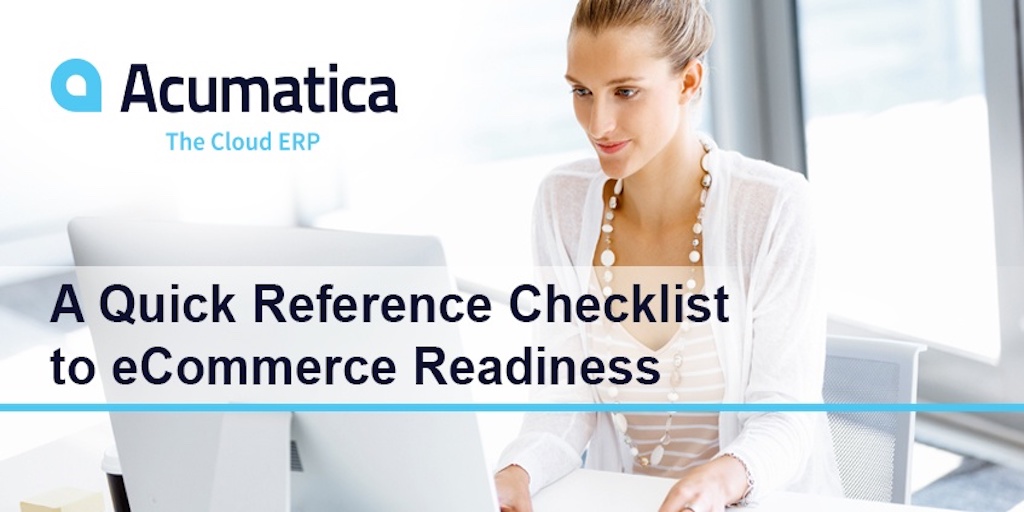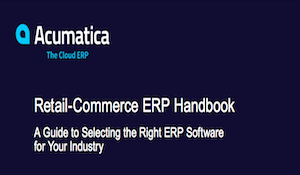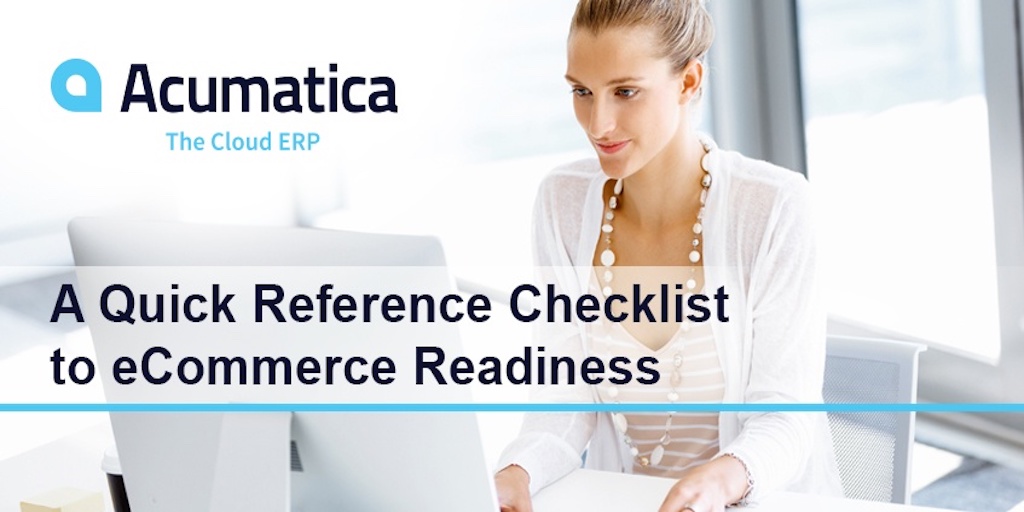1 min read
The Best ERP Software for Your eCommerce Business
SELECT THE PERFECT ERP SOFTWARE FOR YOUR BUSINESS There are hundreds of ERP applications available today. Each has strengths and weaknesses. Some...

The decision to adopt a new ERP for your eCommerce business is a big deal, but you have an even more significant decision ahead of you. The ERP your company chooses needs to manage several essential functions to help your business grow now and into the future.
Like many, you may feel overwhelmed by the number of choices. This blog series was designed to help you make sense of your options, compare the ERP features, and choose the system that will work seamlessly with your eCommerce site, starting with the five main categories to include on your eCommerce ERP evaluation checklist.
Find out more about how to become a well-oiled, eCommerce machine.
Download this checklist today.
Growing companies are frequently seeking ways to increase efficiency for numerous reasons. Increased productivity helps your teams ship more orders per day, improve order accuracy, and deliver orders on time. Your customers are happier because they get what they ordered when they expected it.
Another benefit of a more efficient system is higher employee satisfaction, and this equates to increased employee retention when hiring has been a struggle for many companies. An eCommerce integrated ERP eliminates the manual duplicate order entries that cost them time. Automation provides batch processing and reduces many of the painful activities your teams suffer today to a few button clicks in the future.
Not all ERPs are built alike, so be sure that any software or platform you’re considering offers the basic functionality to handle all your current and anticipated accounting functions. For example, while you may not need multi-entity accounting now, it will become crucial if your organization acquires another company.
Functionality is crucially important in the reporting and dashboards modules, which are often overlooked during ERP assessment. You’ll want to look for features that allow you to filter, slice, and combine data in ways that make sense for how your business runs.
Integration capabilities with your websites, eCommerce backend and your shipping software are a must-have for any modern ERP you’re considering. This feature enables several time-saving automation that works together to exchange product pricing, inventory data seamlessly, and customer order history into a single source of data everyone can trust.
Innovations in cloud technology make it easy for your teams to access the system over the internet, without a VPN, through a standard browser on any device. You no longer have to maintain on-premise servers, patch software, or worry about power outages.
If you were to add up all the costs required to maintain your current server and software, as well as the time lost to manual processes, you’d be closer to the total cost of ownership of your existing software. But if the system you have today can’t scale with you as you grow and support your current processes, what value is it really to your company?
Be sure to take a close look at the licensing options and how you’ll be charged for your new ERP. You’ll have a choice between subscription licensing and perpetual licensing, depending on the solution you’re assessing. They could also impact how you calculate operating expenses versus a depreciable capital expense.
The last category is Risk, which refers to how your ERP can enable you to avoid situations that create uncertainty or open your company to unforeseen costs. For example, make sure the ERP you’re considering has built-in backup and disaster recovery to protect you from having to rebuild company files.
Cloud technology helps reduce financial Risk in a couple of important ways. It’s much easier to plan for a monthly fee than anticipate the IT or developer costs you’ll need to pay for updates and patching or add a new table or customize your software.
Download this informative Quick Reference Checklist for eCommerce Readiness
Be an eCommerce Machine
Find out more about how to become a well-oiled, eCommerce powerhouse. Download this checklist today. And when you’re ready, reach out to us to find out more. If it’s time for a new ERP system, be sure that you have a proven partner that can integrate your eCommerce platform with the rest of the ERP functions and database. The team at Aqurus can help you. Reach out today to find out how their expertise can help you create efficiencies and cost savings. Call (403) 768-0322 or email today!
At Aqurus, we know how valuable Acumatica ERP software is for businesses – especially those in eCommerce and the retail industry. If you’re interested in how Acumatica’s cloud ERP software can boost your business, the Aqurus team is passionate about smooth implementation and ongoing support.

1 min read
SELECT THE PERFECT ERP SOFTWARE FOR YOUR BUSINESS There are hundreds of ERP applications available today. Each has strengths and weaknesses. Some...

Is your business ready to go online? Our checklist for eCommerce readiness will help you answer that question and teach you the benefits of...